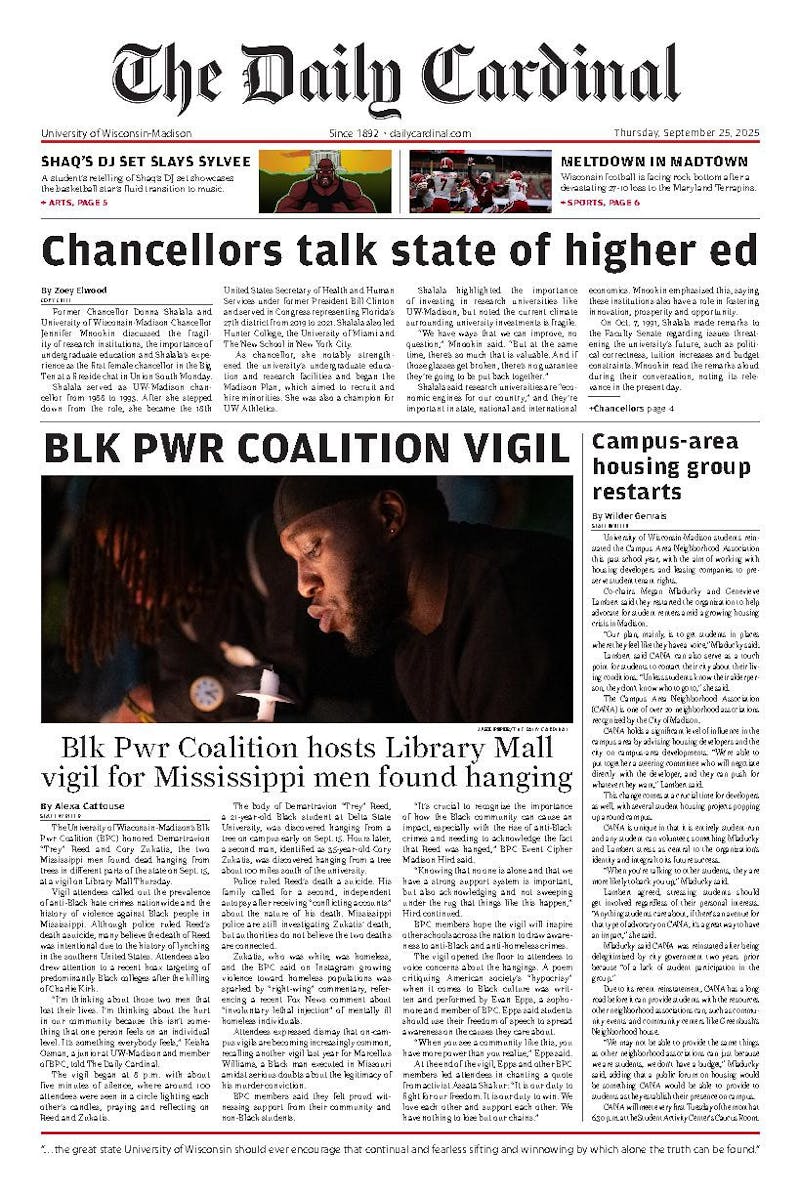The first thing you should know about The Decemberists is that they’re a little conceited. Their conceit, a not wholly unfavorable one, is one of refinement and bookish intelligence. Lead singer Colin Meloy sings songs with big, gilded words; the band plays respectively big, gilded songs rife with accordions, violins, horns and keyboards, anchored by traditional rock instruments (guitar, bass, drum). They named an album Picaresque (2005). And though they’ve been moving away from this literary conceit, even their most recent studio album (2011’s country-ish, R.E.M.-ish The King is Dead and its little sibling, the Long Live The King EP) does not lose the conceit fully.
And make no mistake, indignant Decemberists fans, it is conceit. It’s a guise; it’s a frame for Meloy and co. to work through. And it’s very easy to hate, because we associate conceit with vanity, with an over value of limited resources such as talent, experience and finesse. The kicker, though, is while it’s very easy to hate, it’s also very easy to love, even when the conceit has no real bearing in reality. And The Decemberists are an easy band for people to love.
Decemberists fans are not going to care whether Meloy ever was an architect, whether he ever sought revenge on a whaling ship or whether any of it is real; they’re only going to care when Meloy, as in “The Mariner’s Revenge Song,” wraps up his lyrics with a sinister whisper, as the mandolin trills the melody and sets off a dance into madness. They relish that; I relish it. That’s why I like the Decemberists—because at their most grandiose, or unerringly grandiloquent, they’re still enjoyable, conceit and all.
But the conceit is vulnerable. Even though I have never seen them live, and before the release of We All Raise Our Voices to the Air, had never really heard them live, I never thought of them as a live band. The Decemberists sound like a group that’s very comfortable in the studio. Taken and placed in a venue, it’s almost like taking a reclusive poet out of his study and plunking him in the O2 Arena. Anything literary—conceited or otherwise—usually functions better with an amount of distance between the producer and the audience.
And We All Raise Our Voices to the Air does not quell my concerns. It certainly is rougher and less insulated. Meloy sounds flatter on a lot of songs, and sometimes the instrumentation plods. But—perhaps this is the most miraculous thing—a lot of the material translates well. The words and Meloy’s singing all seem secondary; it becomes about the music.
Certainly their newer songs (from The King is Dead and even 2009’s The Hazards of Love) work well. The R.E.M.-reminiscent “Calamity Song” and the harmonica laced “Rise to Me” retain much of their studio versions’ charm, perhaps because they are simpler. And Raise Our Voices’ version of “The Rake’s Song” takes an already seething song and blows it up into something menacing and murderous. And even older songs, like 2002’s “The Soldering Life,” benefit from the live ambiance.
As with most live albums, many of the songs come with stage banter and cheering, sometimes in excess of two minutes. And a lot of it is funny. The first disc opens with Meloy admonishing any Keith Urban fans in the audience: “If you mean to be at a Keith Urban concert, you will be sorely disappointed.”
“The Rake’s Song” ends with a yodeling chorus. And, best of all, We All Raise Our Voices to the Air is replete with ecstatic shrieks and cheers and clapping from the audience, whose response makes this album all the more worthwhile.





